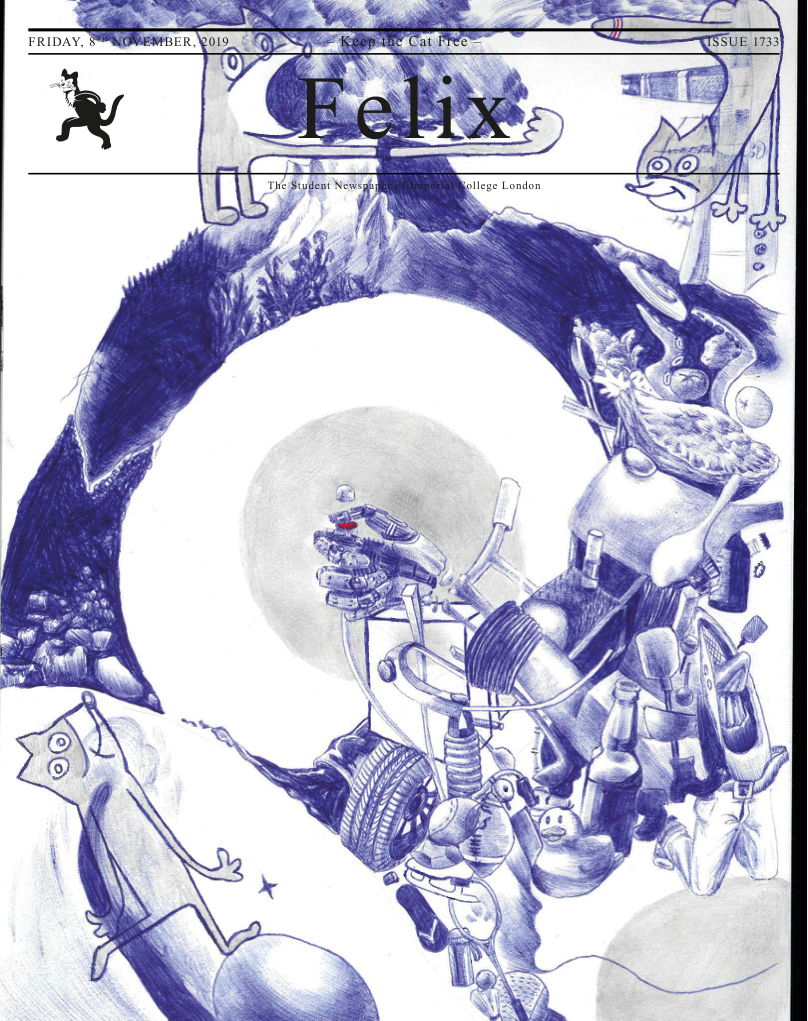Albert Camus’ The Myth of Sisyphus
“There is but one truly serious philosophical problem and that is suicide”

Albert Camus begins with a strong statement, “There is but one truly serious philosophical problem and that is suicide,” which immediately catches my attention. My problem with philosophy has always been its irrelevance, that is, whether you think one way or the other has little effect on how the world actually plays out. The very core of metaphysics lies within abstract beliefs and logic and is essentially “beyond physics.” While I see the appeal of philosophy, its inconsequentiality lingers. However, Camus takes a turn when he deems this question the most important, because of the definitive act it entails, either living for a purpose or committing suicide for not finding a reason to live.
“Absurdism”
“Absurdism” as defined by Camus is the paradox between one’s urgent need for unity to make sense out of this world and the world not making sense. Centuries of religion and philosophies have placed God-given meaning as the sole purpose of existence. Taking it to the far extreme, when we live for our God-given meaning, consider if we are stripped away from that meaning, is suicide then necessary? One metaphor Camus often uses is in a world divested of meaning, a man with existentialist thoughts may feel in exile. He then gives sketches of how feelings of absurdism may strike, at times of weariness of mechanical life, the inevitability of time, or simply the “denseness and strangeness of the world.” It is during these moments that our consciousness awakes and forces us to contemplate whether life has meaning at all.
An absurd reasoning: philosophical suicide
It is notable that Camus explores the approach of other existentialist philosophies at the time in-depth, including Chestov’s and Kierkegaard’s leap of faith into God in hopes of explaining everything irrational as well as Jasper’s and Husserl’s quest after transcendence, all of which falls into the trap of reconciliation something entirely irreconcilable. Absurdism is defined by the contradictory truths of one’s pursuit of meaning and the universe’s utter silence on the subject matter. To apply transcendence on it, either through hope or blind faith, is to escape the paradox. Clearly, Camus is dissatisfied with all answers that attempt to deny one or the other piece of the paradox. Therefore the question of facing the absurd with consciousness remains.
Revolt, freedom, and passion
The section on absurd freedom, where Camus redefines freedom in the context of absurdity and arrives at a conclusion on how to live with absurdity, is a personal favourite of mine. His definition of freedom is essentially the photo-opposite of the traditional philosophical definition, where one has the choice to decide on the basis of values held by that particular person. Camus’s version essentially disregards the values, which he claims will form preconceptions where one ought to follow. To achieve true absurd freedom, one would have to abandon those pre-existing expectations and live life as is.
This leads us into his proposed way to deal with existentialism and the conclusion at which he has arrived--revolt, freedom, and passion. To Camus, suicide is merely an acceptance of the conflict, whereas living the absurd is revolting against the absurd. With the freedom as defined above, one must also live passionately, continue challenging the world, living in the present and living life to the fullest whilst recognising the futility of it all. As Camus puts it, “Being aware of one’s life, one’s revolt, one’s freedom, and to the maximum, is living, and to the maximum.” It is rather interesting and delightful to see how Camus moves from existentialism to a conclusion that resembles the cliches of many self-help books.
Sketches of the absurd man
It is no surprise that as a womaniser himself Camus would choose to draw examples from the seductive Don Juan. Contrary to common claims that he’s after some transcending true love, Camus proposes that Don Juan simply enjoys the experience of seducing and devotes his life doing that and only that, despite recognising its meaninglessness. One example is stage actors embodying this philosophy by living out the intensity and variety of life, unburdened by fame and endeavouring in the fleeting joy. Another example he gives is the conquerors, who acknowledge that “action is in itself useless” and is “fully aware of the grandeur.” While including such sketches provides physical forms of innocent, amoral beings fully embracing the absurd, I would say that protagonists in Camus’s other works like The Plague better represent Camus’s vision of an absurd man.
The Myth of Sisyphus
The perfect embodiment of an absurd heroic figure would be Sisyphus, who is punished to roll a rock uphill only to watch it fall, and repeating that till eternity. Camus is especially interested in Sisyphus’s consciousness at the very moment that the rock rolls down before Sisyphus continues to push the rock up. It is Sisyphus’s state of lucidity at the moment that sets him free from his fate. As Camus puts it, “The struggle itself towards the heights is is enough to fill a man’s heart. One must imagine Sisyphus happy.”
Final thoughts
Strictly speaking, The Myth of Sisyphus is not a work of philosophy but rather Camus’s attempt of building a framework on how to live. In this sense, it is not peculiar that he has arrived at the conclusion that he did. Although he left many questions unanswered, his response is certainly a pragmatic answer to the continual search for meaning. I like that Camus himself fully embodies his own philosophy of the ironic blend of detachment and passionate-living, and that is perhaps the best a philosopher can do.









